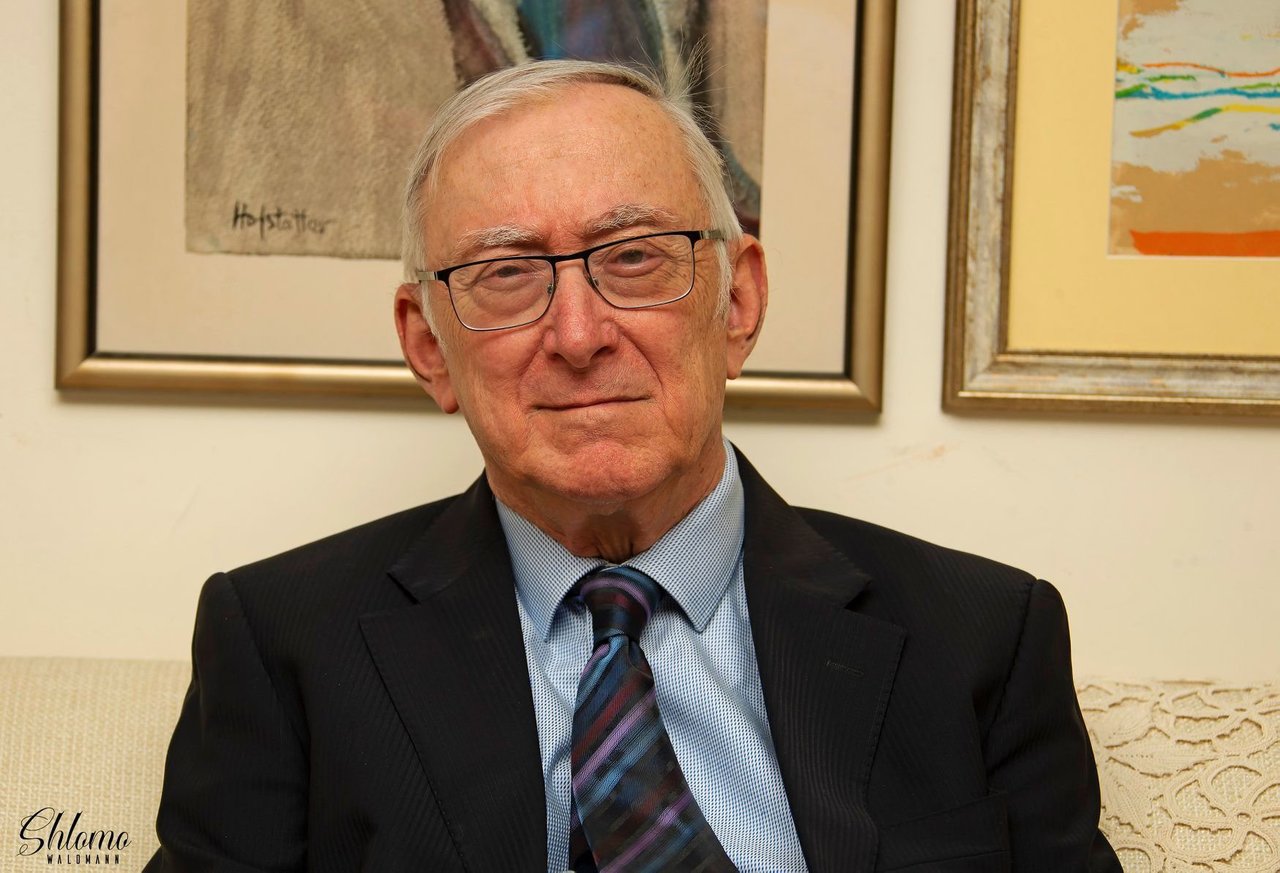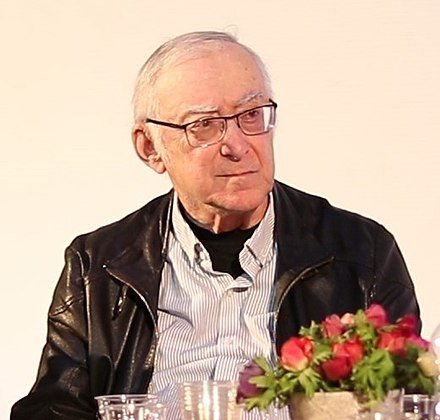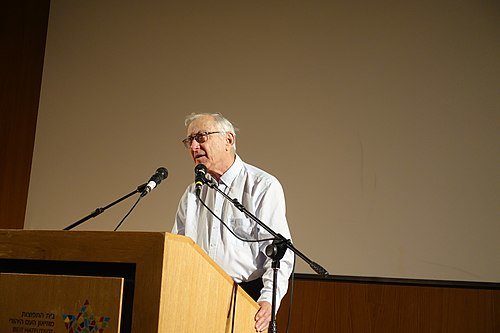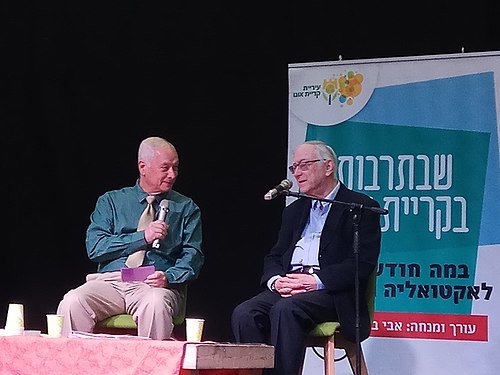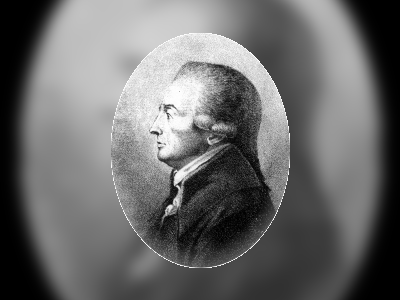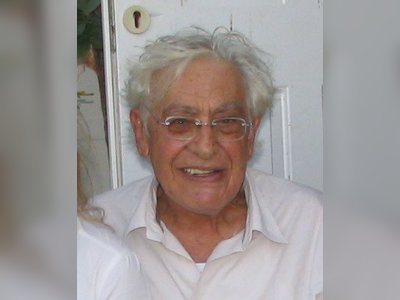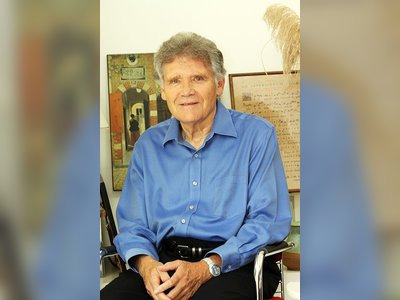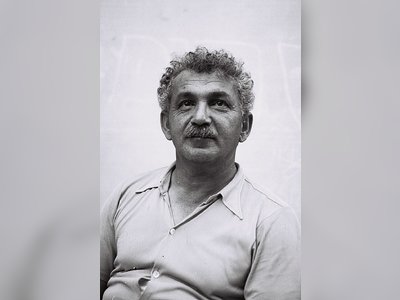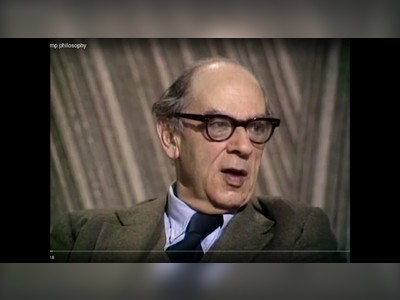מורשת גדולי האומה
בזכותם קיים
beta
Asa Kasher: A Life Dedicated to Philosophy and Ethics
Asa Kasher, born on June 6, 1940, in Jerusalem, is an Emeritus Professor of Philosophy at Tel Aviv University. He is renowned for his work in the pragmatics of language and professional ethics. He is also one of the authors of "The Spirit of the IDF" and has been honored with the Israel Prize in Philosophy.
Early Life and Education:
Asa Kasher was born in Israel to Shimon Kasher, the son of Rabbi Menachem Mendel Kasher, and Tzipporah, the daughter of Rabbi Yaakov Rabinowitz, the rabbi of Rogozin, and the son of Rabbi Zvi Yehuda Rabinowitz, both prominent twins. His brother is Professor Rimon Kasher. In his youth, Kasher was close to his grandfather, Rabbi Menachem Mendel Kasher, and assisted in editing his writings. In the 1970s, he removed his kippah (skullcap) to distance himself from the ultra-Orthodox community.Kasher attended Tel Aviv High School A and later studied mathematics at the Hebrew University of Jerusalem as part of his academic pursuits. In 1963, he completed a second-degree in mathematics, applied mathematics, and the history and philosophy of science. He conducted his thesis under the guidance of Professor Michael Rabin. He also served in a unit associated with the Israel Defense Forces (IDF) intelligence. In 1964, he began working as a mathematics instructor at Bar-Ilan University. He completed his doctoral studies in 1971, supervised by Professor Yehoshua Bar-Hillel, focusing on the philosophy of language. In the same year, he went to the United States for a year of research and teaching at the University of Texas at Austin as a Fulbright scholar.
Academic Career:
In 1975, Kasher was appointed as a professor at Tel Aviv University, and in 1979, he became a full professor. Over the years, Kasher authored more than 150 scientific publications. In 1971, he co-founded the journal "Philosophia," the Israeli quarterly for philosophy, and served as its chief editor (jointly with Alex Blum until 1975). He also served as the academic editor of the second edition of the "Encyclopedia Hebraica." He contributed regular columns to the newspapers "Maariv" and "Tel Aviv." Currently, he holds the chair for professional ethics and the philosophy of practice. Prior to that, he served as the head of the philosophy department at Tel Aviv University. Additionally, Kasher is a deputy director of the Center for Ethics in Jerusalem and a member of the editorial board of the international Journal of Military Ethics.
Contributions to Military Ethics:
Kasher gained recognition for his contributions to military ethics. He co-authored the "Spirit of the IDF," which outlines the ethical principles guiding the Israel Defense Forces. This code draws upon Jewish tradition, the morals of democracy, and international legal principles. In response to the events of the Second Intifada, Kasher and the IDF Chief Education Officer, Major General Amos Yadlin, co-authored an article presenting moral arguments for targeted assassinations of terrorist leaders. The Israeli Supreme Court referred to this document in its judgment on the legality of such actions.
Controversies and Criticisms:
Kasher's involvement in military ethics has drawn public scrutiny. In 1997, he was accused of uncritically supporting the "military establishment" in an article published in "Yedioth Ahronoth," where he was portrayed as the spokesperson for bereaved parents. In response, Kasher filed a defamation lawsuit against those quoted in the article, arguing that his statements were taken out of context and were made within the framework of legitimate academic debate. The Magistrate's Court dismissed the lawsuit. Kasher appealed to the District Court, but the defendants agreed to apologize in both "Yedioth Ahronoth" and "Haaretz," leading to the case's closure. Another criticism of Kasher's work is that it adheres to a traditional philosophy of language, which limits its focus to the linguistic aspects without adequately examining their institutional, social, and moral contexts, thus undermining its ethical validity.
Public Involvement and Advocacy:
Kasher has been a member of various public committees and chaired some of them. In 2005, he submitted recommendations, along with a committee he chaired, regarding the ethical dissemination of information through the internet. In November 2006, he was invited to testify before the Winograd Commission investigating the events of the Second Lebanon War, offering his expertise on military ethics. Kasher discussed various ethical issues, such as the legitimacy of going to war under existing circumstances, the legality of firing at arms caches hidden within multi-story buildings, and questions related to the implementation of IDF values in the army.In January 2007, Kasher and a committee he led submitted recommendations to the Second Authority for Television and Radio to regulate and limit political activities and expressions of political opinions by academics within academia. This proposal faced sharp criticism, and around a thousand academics signed a petition in which they pledged to disregard the recommendations, arguing that the government has no right to interfere in academic expression.
In April 2020, Kasher voiced criticism of the handling of the COVID-19 crisis by the Ministry of Health and the government. In an interview, he addressed various ethical, moral, and value-related issues that arose during the crisis.
Political and Personal Life:
In 1992, Kasher was placed 110th on the Meretz party list for the 13th Knesset elections and 105th for the 14th Knesset elections. In the run-up to the 24th Knesset elections, he joined the Yesh Atid party led by Yair Lapid.In 2020, Kasher became involved in the public advisory council for the COVID-19 crisis, criticizing the vaccination of children against COVID-19 with the aim of protecting adults.
Family Life:
Kasher's wife, Naomi Kasher, is a philosopher with a Ph.D., teaching at the Academic College of Tel Aviv-Yaffo and the University of Haifa. She specializes in the philosophy of Isaiah Berlin.The Kasher family had three children and lived in Ramat Gan. Their eldest son, Yehuraz, a major in the IDF reserves, tragically lost his life in an accident while on a study trip in Sinai in October 1991. Yehuraz's death led to Asa Kasher's recognition as a bereaved father, but only after the Exceptions Committee deliberated on the matter and established a general policy change. In Yehuraz's memory, Asa Kasher founded the "Yehuraz Association," which contributed a library and club to the IDF unit where his son had served and established a prize fund and a course on "Science, Technology, and Ethics" at the Technion. In honor of his son's memory, a statue was erected, musical compositions were written, books were published, including ones on "Dimensions and Emotions" and "Military Ethics," and lectures and concerts were organized.
Asa Kasher's contributions to philosophy and ethics, particularly in the context of military ethics, have left an indelible mark on the academic and public discourse in Israel, generating both praise and controversy. His work continues to influence the field of ethics and language philosophy worldwide.
- אסא כשר – ויקיפדיהhe.wikipedia.org
